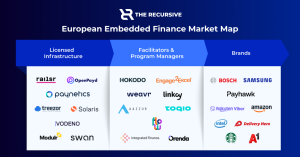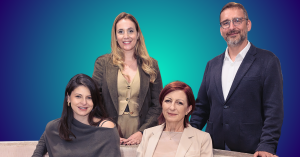The steps of building a startup can be very different. Some founders dive into accelerator programs or hack away at an MVP. Others focus on selling from the start or try to get investors interested right away, even before having a product. There is no one-size-fits-all blueprint and it depends on using what you know and who you know to make things happen.
Yet, if there is one thing common to most startups, it is the following – brace yourself, it might not be as easy as it seems. In fact, even Nvidia Cofounder & CEO Jensen Huang shared in a podcast episode for Acquired, that if he’d be to go back 30 years and start again, he wouldn’t do it: “Building a company and building Nvidia turned out to have been a million times harder than I expected it to be,” he confessed.
In today’s article, we will explore one of the ways to build a startup, namely growing a business with external funding. As you know, there can be different sources of capital and each of them works differently. For example, you can raise from VCs, family offices, business angels, grants, or others.
To shed some light on how it is to fundraise in today’s challenging economy, we talked with founders at different startup stages who are in the process or recently closed a round. Of course, their advice is shaped by their own journeys, so it’s good to consider their insights with an open mind.
To fundraise or not to fundraise?
According to CB Insights, 47% of 473 surveyed startups failed because they didn’t have financing/investors. That’s almost half of them.
It looks like the situation is similar in our community, as 2 of the 4 founders we talked to on the topic are facing challenges when it comes to fundraising.
To describe the actual fundraising climate, Radu Negulescu, founder of the Romanian videoconferencing platform Sessions thinks that
“2023-2024 probably will be remembered as <the great startup extinction event>. It’s like in the 2000s when 90% of startups died. The only rule that counts is surviving.”
Besides this, Negulescu believes that in 2023 the fundraising was the slowest since the Roman Empire and that 2024 will be kind of the same. “I don’t think we will see more investments this year than in 2023. Last year, we had some outliers who already raised, so I don’t think they will raise as much. I think Romania and CEE will be under the 2023 level this year.”
Since launching in 2021, Sessions has raised approximately €11.5M from EarlyBird VC, Stride VC, LauncHub VC, Isometric VC. Negulescu also invested a good amount.
“To convince VC funds to invest the first time and then for follow-ons, I invested myself. It shows commitment. If I hadn’t had the money, I would have borrowed from somewhere and would have done the same. Money is freely walking on this planet and as a founder, you have to find it.”
Another founder from our community shares that talking to VCs is no easy task.
Ilia Iordanov, the co-founder of Ondo, a smart farming solution based in Bulgaria, says that if you are an AgTech, VCs are kind of ghosting you.
“Although I applied on their website, most of them did not answer back. I sent my presentation to 60 funds, 20 answered and I had 1 meeting. As statistics say and I also experienced this, you need to approach 50 investors to get 1 yes. Also, I learned that getting introduced by someone they know can dramatically increase your chances for grabbing their attention.”
Also, Iordanov learned that VCs may not understand how an agriculture solution works. “When you deal with hardware and you have to invest in R&D, it’s more capital intensive. Adding to that the fact that there are specificities to the agricultural sector, like seasonality, AgTech solutions are not growing as fast as let’s say FinTech. It’s closer to some HealthTech solution, where you need clinical trials.”
Ondo raised €2M in funding from Eleven Ventures, Sofia Angel Ventures, MFG Invest and is still in negotiations for a future round. “We probably need €2M more, on top of our sales, to develop our hardware and expand to other countries.”
But fundraising is not the only way. Other founders decided that instead of spending their energy on pitching, they would focus on acquiring and delivering to their clients.
“As I see, VCs are very careful in this period. Many wait to close new funds and don’t want to make any new investment decisions. Therefore, we also decided to change our focus from fundraising to rather acquiring and delivering to clients,”
highlights Ruxandra Cord, founder of theCoRD.ai, an Romanian AI-based solution for managers of remote teams.
“We are looking to raise a pre-seed round of €500K and are talking to VCs. It seems they don’t have such a big appetite for very early-stage startups, even if this is their investment thesis. We assume the process will be pretty long and can take up to 9 months,” Cord adds.
Even though it can be tough, maybe sometimes bootstrapping is the way. “Not having money to spend can help you find other creative ways and train your bootstrapping muscles,” she believes.








